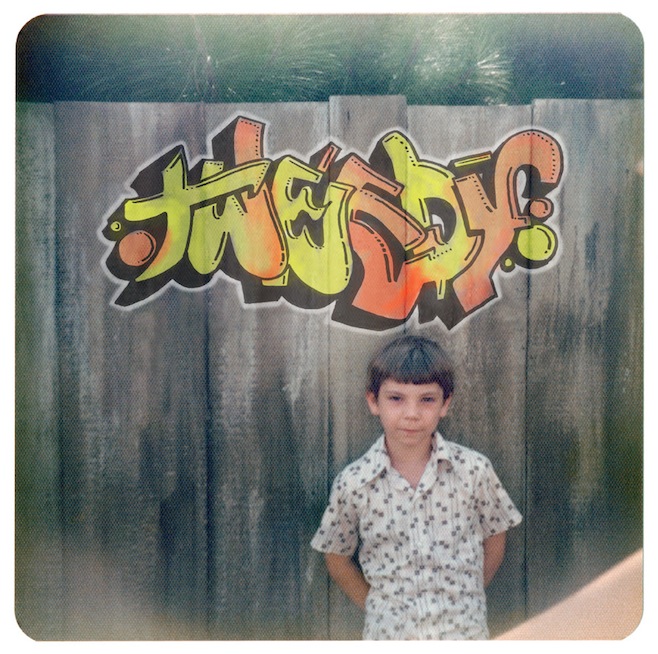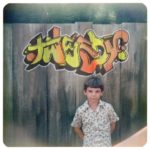
Before we jettison the term “dad rock” entirely (please), let’s use it as a springboard to discuss the most important part of alt-country-psychedelia pioneer Jeff Tweedy’s life: his role as an actual dad. It’s what forms the basis of his latest solo outing — a new project that features his 18-year-old son, Spencer, on the drums and in really fine form. The album’s title is Tweedy’s lovey nickname for his wife, Susan. This is two-disc moment of family bonding, through and through.
And for those who’ve followed Tweedy’s dynamic career arc, it’s another high-water mark. The volatile guitarist and singer-songwriter (who, by the way, performs everything on the album save for the drums) seems to have picked up a world of creative inspiration from hanging with his kid and letting the ideas flow like water.
The album starts out in the vein of garage rock, and the opener is sort of a sendup of Tweedy’s younger days, couched both in power chords and angsty lyrics (“I don’t wanna give you satisfaction / I don’t wanna call in code / I’m all in / You’re boring…”). But that mood dissipates almost immediately, and we all duck into “High as Hello,” which is Tweedy’s version of a radio single that trips along a summertime field of groovy reverb and melancholia.
We bounce through different variants of introspection and, soon enough, approach “Diamond Light Pt. 1,” which ranks among the best songs Tweedy has written since A Ghost is Born. This one is driven intensely by Spencer’s excellent percussion work (seriously, watch this kid over the next few decades). He hammers out a polyrhythmic backbone for this tune, while his dad croons over brooding minor-key undulations. You can hear Wilco drummer Glenn Kotche’s laser-focused influence all over Spencer’s beats, but the kid tosses on unique flair with every flick of the wrist.
“Diamond Light Pt. 1” morphs into a jangling back-alley fist fight of cymbals and feedback before dropping into more atmospheric ambience and, once more, Spencer’s foundational kicks. (As is the Tweedy style, we soon vault back into outer space.)
And that is, if anything, indicative of the broader vibe on this collection. There’s a lot of music to dig into here, and the discriminating listener is probably usually wary of double-disc debuts from new projects. Listen, to many Jeff Tweedy is sort of infallible as an artist. But this is a massive collection of sometimes-disparate tunes.
Here’s Tweedy earlier this year in The Guardian: “I understand in this day and age there might not be many people who will listen to it that way, but it doesn’t matter – because I want to listen that way. I’m not a curmudgeon, a luddite or anti-modern technology doomsayer. I just want to listen to the album and have a feeling that one part has ended, and now I can take a little breather before I listen to the second part. Or I can listen to the second part another time. It’s a double record on vinyl, so there are three breaks like that. I wanted it to have different identities artistically and the album format allows me to do that.”
That might be the best way to reckon with this album. Gather its morsels piecemeal. Each song, like the best of Wilco’s output, is a little world unto itself. Like a family and its varied history, there are ups and downs and complex decisions and simple joys.
Which brings us to “Pigeons,” one of the several truly solo tunes on this album where Tweedy taps into the familial well of what he’s doing here. This song is a letter to his son, nearly in the form of a Zen koan. “Now that you’re older, now that you’ve grown / Now that you’re getting to know the unknown…” he gathers the premise of a middle-aged man talking to his son on the verge of adulthood before setting off on metaphor and (briefly) spiritual musing. It’s a sobering trip along Tweedy’s guitar neck and through his years as a father (a father on the road quite often, but one also, surprisingly for a “rock star,” who helms a tight-knit family in suburban Chicago).
“Pigeons,” as an acoustic number, is mirrored later in the album by “Fake Fur Coat.” This tune is classically Tupelo Tweedy songwriting. The hammer-on/pull-off riff is to die for, and Tweedy’s ability to articulate complex ideas in no more than four stanzas shines as ever here. Think of this song as a 47-year-old leafing through an old journal and penning a quick, dashing sequel to “Wait Up.” Sorta.
Certainly, the points where Tweedy dives to oceanic depths of introspection are important landmarks along the way through this album. I mean, who the fuck else can write like this guy? But this album’s most visible and, as the years wax on, defining features are marked with his son’s involvement (the poppy “Low Key,” the anthemically side one-closing “I’ll Sing It,” the heartbreaking “Summer Noon”). You can hear the mutual sidelong smirks in the studio. Those had to be some wildly fun recording sessions.
We close with Tweedy returning to his guitar alone on “I’ll Never Know.” Here, he thinks back to time spent with his distant and late mother, the TV skipping through blue-hued 1970s programming and, as she sleeps, the ash of her cigarette flitting softly onto her lap. The present-day songwriter considers parenthood in one of those fractal moments of nostalgia and gripping humanity and, somewhere deep within the speakers, smiles: “I love us being alone in the TV glow / When I think you don’t know but you do…”



No Comments comments associated with this post